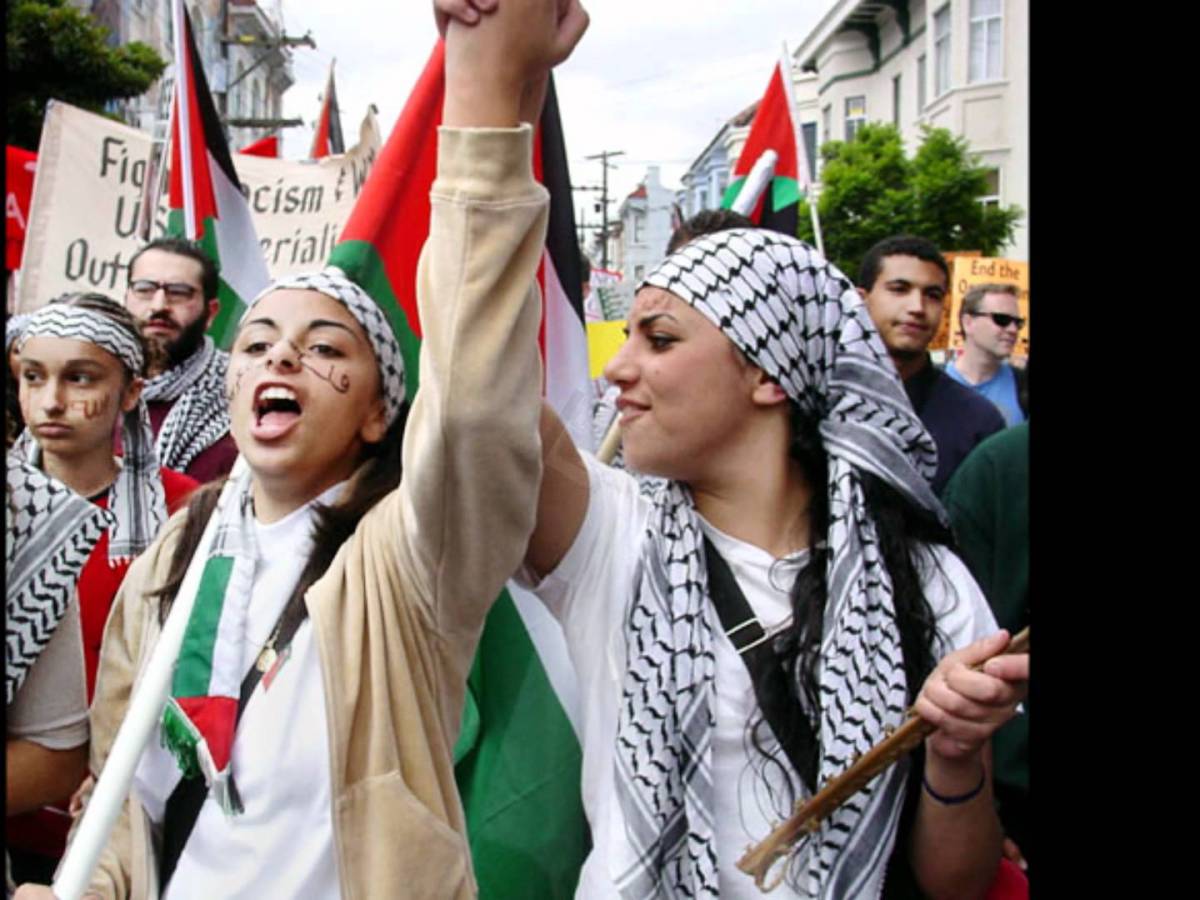Our world is an ever-evolving mix of rapidly changing cultures set in a mesmerising mosaic of colours, languages, faiths, beliefs, and practices. In the Middle East – like many other parts of the world – an intense fight against beloved traditions and sacred customs has been shaping the social and political scene, notably in the last decade. This fight is nothing but a pursuit of equality, justice, and peace.
The saddening truth is that, in the MENA (Middle East and North Africa), men and women have never been equal, because men have historically been the privileged gender – due to numerous factors and contributors – while women struggled, fought and lived pressured by judgements and expectations. And at times, it is both men and women who fail to understand that the differences found in our ideas, actions and values, are what determine who we are, not the mere biological differences in our genital organs.
Gender equality should be the norm in today’s society. One who stands up against sexism and misogyny is one who stands up for humanity in its entirety. People from this generation, men and women, should pass on the knowledge gained in the past to the coming generations, and ensure that we truly learn from our mistakes. But, how can we win this unjust fight without having to betray our ancient, most ingrained values and principles?
Women have been discriminated against for centuries, everywhere. They have always been pressured by universal discriminatory patterns defined by patriarchy and male privilege. But norms can change, and it is time for disruption. Norms that our societies claim to be “sacred and unquestionable” are no different from other ancient practices we have abolished after realizing how absurd and preposterous they are.
Do we in our current society still sacrifice children to bring more rain for the crops to grow? No. Do we still fear tomatoes and think they are poisonous fruits? Of course not. This confirms that culture can change. In fact, change is all that culture can do.
Culture is a never-ending process of learning, adapting and transforming. We change it with time, because we make culture, culture does not make us.
Lebanon
In the last decade, youth participation in safeguarding gender equality and promoting women’s rights in Lebanon has been of a paramount importance. The 2011 uprisings in the Arab world sparked the mobilization of young people across the region to fight inequalities and gender stereotypes.
Among Lebanese youth, the ongoing engagement into a tech-focused and tech-literate environment has played a significant role in organizing opposition towards anti-gender equality norms that are often a result of a certain sexist societal behaviour, not directly related to the country’s social status laws.
It is also fair to say that the sociopolitical scene in Lebanon has shaped the way adolescents approach the pro-gender equality discourse. These circumstances created an inevitable collectivity of both activists and the social context in which youth are acting. This collectivity ensured the collaboration among young Lebanese women and men who are promoting a new image for feminists and advocating for personal freedoms related to people’s bodies, sexualities, and personal choices.

In the photo: Lebanese women converge and demonstrate during the Arab Spring of 2011
What is Feminism?
Feminism has never been a fight against men or boys, nor has it been an attempt to reverse history by making girls and women the superior category of society. What we can learn from all this is that one does not have to be a member of a segregated group to be pro-feminism. Blaming history, promoting atheism and running anti-men movements will not help either. It is the misunderstanding of the purpose and aim of feminism that blocks the understanding of feminism itself.
Unsurprisingly, it is the law of equality that we all need to respect and promote, any other law would be a step backwards. And this process should be of the interest of men and boys as it is of women and girls. It goes without saying, for our future to be better and fairer, men and boys need to willingly engage in feminism, embrace the full idea of equal genders, challenge other men to end patriarchy, and learn to liberate all genders. Liberty brings opportunity, prosperity and progress.
How to achieve change?
Movements like Nasawiya, active in the gender equality scene since 2010 in Lebanon, contributed to publicly raising the predominant issues of patriarchy, body shaming, harassment, gender-based violence, judgemental health and sexuality services, and gender inequality in the workplace.
Nasawiya members also seek to refrain from creating more gender divides by blaming men, and strive to have both men and women work hand in hand to empower underprivileged Lebanese women to demand full citizenship rights and play an active role in policy-making. It creates a network of feminists supporting each other and challenging other men and women to condemn all kinds of sexism as well as norms or practices manifesting gender inequality and discrimination.
The course of action of such movements focuses on collecting efforts of young individuals, male and female, from various backgrounds, involved in gender justice work, to recreate a democratic and just societal environment free from sexism and all other forms of gender-based discrimination and exploitation.
For many boys and men this will be a difficult and challenging path to take because they have, until now, been the enjoyer of this cultural superiority. What would make these men think and behave differently is freedom of choice, a true will to think and reflect, and a chance to make changes. These of course come with a good education system, democracy and freedom, with diversity and intercultural exchange.
The biggest issue
We all know, ideally, that gender equality is not a women’s issue. It is a global concern that affects our lives irrespective of our gender differences, but also a concern that requires active input from both men and women.
In order to realize an inclusive environment that values all contributions towards gender equality, we first need to break all gender stereotypes. By eliminating the one barrier that separates male roles from female roles, we clear a path for a more effective social system where no contribution is too small and where what matters is the action not the gender of whoever performed it. In the Middle Eastern context, this might be a challenging task for it has to do with the accumulation of cultural and social norms dictating the inferiority of women in regards to their social position, role in households, and decision-making.
Another important point not to miss, is the fact that there has to be a collective approach encouraging the participation of boys and men in establishing gender equality in day-to-day life. In the MENA region, especially in countries like Egypt and Saudi Arabia, there is very little consideration to uniting men and women into this cause. Women cannot bring about social change and defy sexism and misogyny while men are on the opposite side of the stage. Similarly, boys and men cannot productively contribute to eliminating discriminatory ideas and practices and creating a more just society without an all-gender collaboration. This process starts as early as childhood, when boys are learning about the opposite sex and starting to notice the simple inequalities that corrupt our communities little by little.
We need to encourage boys to stand up for equality and justice at all times, to confront all forms of sexism and gender-based discrimination even in the smallest instances, and to share responsibilities with girls and women free from any feelings of authority or privilege, any gender stereotypes, and any judgemental behaviours or attitudes.
In short, for gender equality to be realized in such contexts, citizens and civil society activists have to see and understand the greater social benefit of gender equality, act upon it, and challenge others to do the same.
Fundamentally, men should be supported when breaking with the norms of the past. Boys just as much as girls have been ruled by unwritten “social-laws” forcing them to adopt highly masculine attitudes.
Changing this narrative is challenging and can be onerous. Women can always find support with each other when they fight against unjust social systems, oppressive personal status laws, or other discouraging circumstances they face. But, men and boys do not grieve with other men over the harm and oppression they have experienced because of their gender.
Finding an answer for men
It is essential that we drop the socially-imposed masks of the so-called “masculinity” that forcefully shapes the way men think and act, sometimes against their own free will. We have to disconnect the pro-gender equality concept from what many see as “shame” or lack of masculinity.
It’s not either sensitivity or toughness, masculinity or femininity. Life is not black and white. We have to let men feel free to be sensitive, compassionate, empathetic, and thoughtful.
This is how we break the gender barrier so that feminism and gender equality activism are no longer a gender-dependent issue. Anyone can be a feminist. Anyone can be a strong proponent of women’s rights and social justice. We have to welcome men to address the power imbalances that restrict people’s freedoms and opportunities. And this cannot happen unless the emancipation of women is accompanied by the emancipation of men from a restrictive imposed way of life.
Editors note: The opinions expressed here by Impakter.com columnists are their own, not those of Impakter.com










